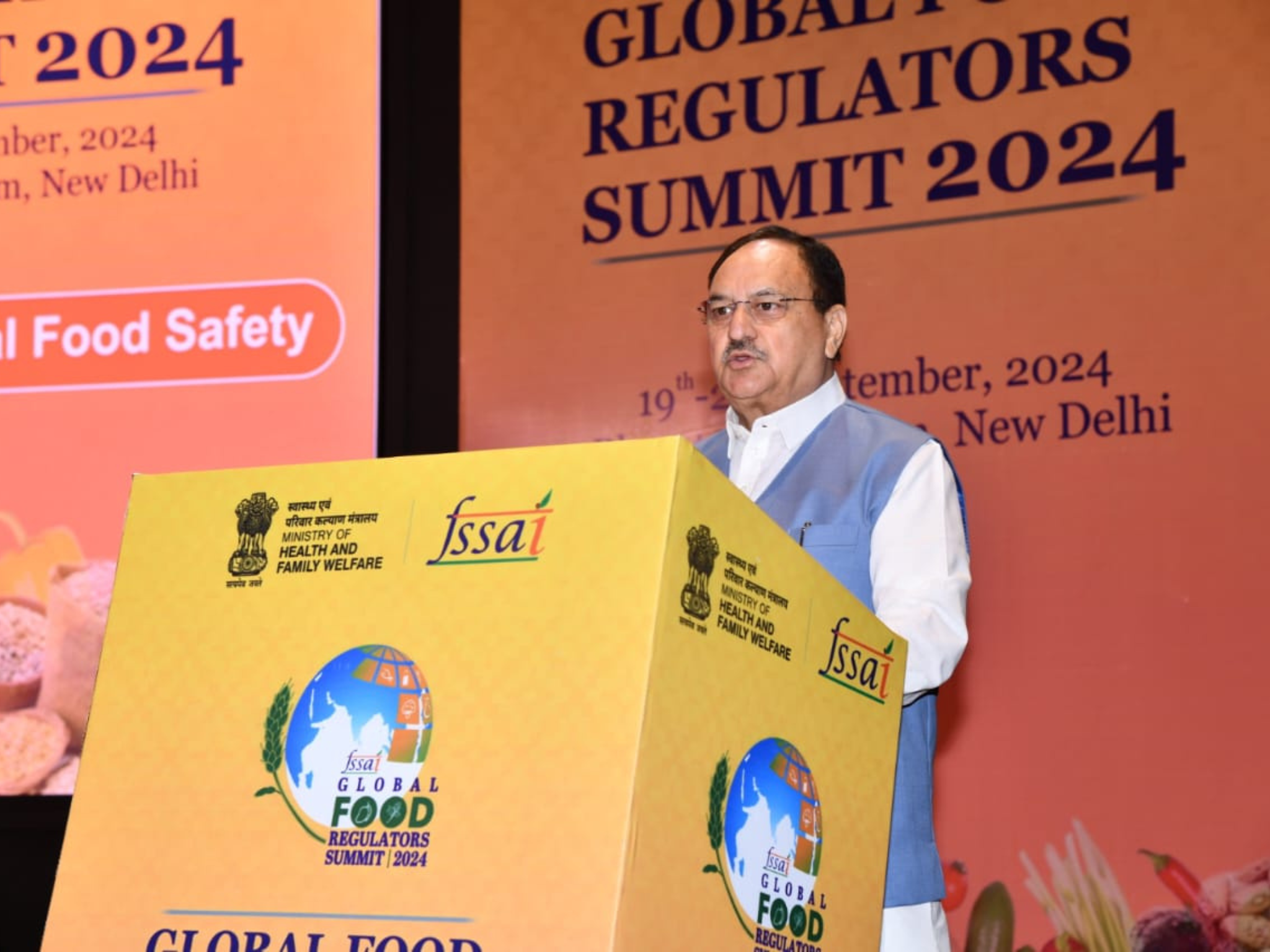India’s Health Minister Calls for Regulatory Reform of Novel Foods to Meet ‘Evolving Consumer Preferences’
5 Mins Read
At a food safety summit in New Delhi, India’s health minister JP Nadda underscored the importance of building a regulatory framework for novel foods like cultivated meat.
The Indian government’s support for alternative proteins continues to shore up, with the country’s health minister highlighting the importance of regulatory reform for foods like cultivated meat.
Speaking at the Global Food Regulators Summit 2024 in New Delhi, JP Nadda commended the work of the Food Safety Standards and Authority of India (FSSAI) in the first 100 days of the new coalition administration, putting it in the context of a growing list of food safety advancements needed in India.
“We face a complex array of challenges, from persistent foodborne illness to emerging concerns such as new nutraceutical safety, novel foods, and the microplastics in our food chain, all while striving for sustainability,” said Nadda, the Union Minister of Health and Family Welfare.
“In this dynamic environment, the role of food regulators has never been more crucial. This demands continuous collaboration, relentless innovation, and a commitment to constant improvement in our food safety systems,” he added.
India working on novel food regulatory framework
It’s still early doors for technologies like cell cultivation and precision fermentation in India, with only a handful of companies involved in these sectors at present.
But there have been a number of advancements in the last few months, propelled by the FSSAI’s work on developing a regulatory framework for these foods, which would allow companies to apply for and receive clearance to sell their products on the market.
Currently, the FSSAI categorises cultivated meat and precision-fermented foods as ‘non-specified’ products or ‘novel foods’, since they have no history of consumption in the country. But in March, it was reported that the food safety regulator was formulating a framework for these proteins, with a senior official saying: “We are working on drafting regulations for cultured meat products.”
Nadda said that the health ministry and the FSAI have been “playing a pivotal role in developing standards” in line with international trade, evolving food production processes, and changing consumption patterns.
“The rapid globalisation, technological advancements, and evolving consumer preferences are reshaping our food systems at an unprecedented pace,” he explained. “FSSAI has made remarkable strides in reviewing and developing new standards based on cutting-edge advancements in food technology.”
That said, while it is believed that cultivated meat will be regulated under the Approval of Non-Specified Food and Food Ingredients Regulations (NSF Regulations) by the FSSAI, there is currently no specific definition of cultivated meat or guidance provided under these rules.
The FSSAI had previously formed a Working Group on Cultured Meat with regulatory and scientific experts to study the possible regulatory pathways for cultivated meat in India, although experts say the framework needs to be more dynamic and align with ongoing innovations.
“Developing a regulatory framework that adapts to scientific advancements and is not rigid, but accommodates the innovations in this sector, would be essential to India setting an example for a dynamic and effective regulatory framework on cultivated meat,” Astha Gaur, regulatory policy specialist at alternative protein think tank the Good Food Institute (GFI) India, told Green Queen in March.
Increasing government interest in alternative proteins

Nadda’s comments – which also involved a focus on sustainable packaging – come just a month after India announced its BioE3 policy. The climate-focused bioeconomy strategy counted smart proteins and functional foods as one of its six pillars.
“By providing dedicated R&D and innovation support, the policy will accelerate the development of new technologies and processes that can pave the way towards the nutrition, price, and taste parity of smart protein products, making them a truly competitive alternative to their animal-derived counterparts,” GFI India acting managing director Sneha Singh told Green Queen at the time.
Announcing the country’s latest budget in July, finance minister Nirmala Sitharaman said the government will set up 100 accredited food safety labs nationwide. Along similar lines, India has also set up a $5.9M National Research Foundation to expand research across sectors including food safety (Prime Minister Narendra Modi spoke about lab-grown diamonds at its first board meeting).
Meanwhile, Bengaluru is host to two new alternative protein hubs. The Centre for Smart Protein and Sustainable Material Innovation is focused on incubation, equipment access, and product development, while the Alternative Proteins Innovation Center is an integrated R&D facility for ingredient and product development.
Singapore’s Umami Bioworks has partnered with the former to accelerate research and scalability of its cultivated seafood, while also setting up an R&D facility at the Sathyabama Institute of Science and Technology in Chennai. Fellow cultivated meat startup Neat Meatt Biotech – based in New Delhi – is working with the government’s ICAR-Central Marine Fisheries Research Institute to develop cultivated fish too.
These advancements serve as proof that India has a burgeoning cultivated meat sector, but one that needs better consumer awareness. A 2023 survey revealed that the number of Indians familiar with the term (42%) was almost identical to those who weren’t (41%). And while 40% expressed interest in trying cultivated meat, a third of respondents “stayed neutral and didn’t answer the question”, highlighting the industry’s public perception challenges.
Nadda wasn’t the only national government official talking up novel foods last week. In the UK, science secretary Peter Kyle was asked about cultivated meat on Sunday. “I think it’s an exciting area of science. Britain is leading the way on its development,” he responded.
“The market would tell – we’re not going to force anyone to eat it. But let’s see whether this can contribute to the health of our nation, and help with the challenges of climate change. And for those people who have concerns about animal rights, then they may well offer something for them as well.”



